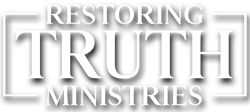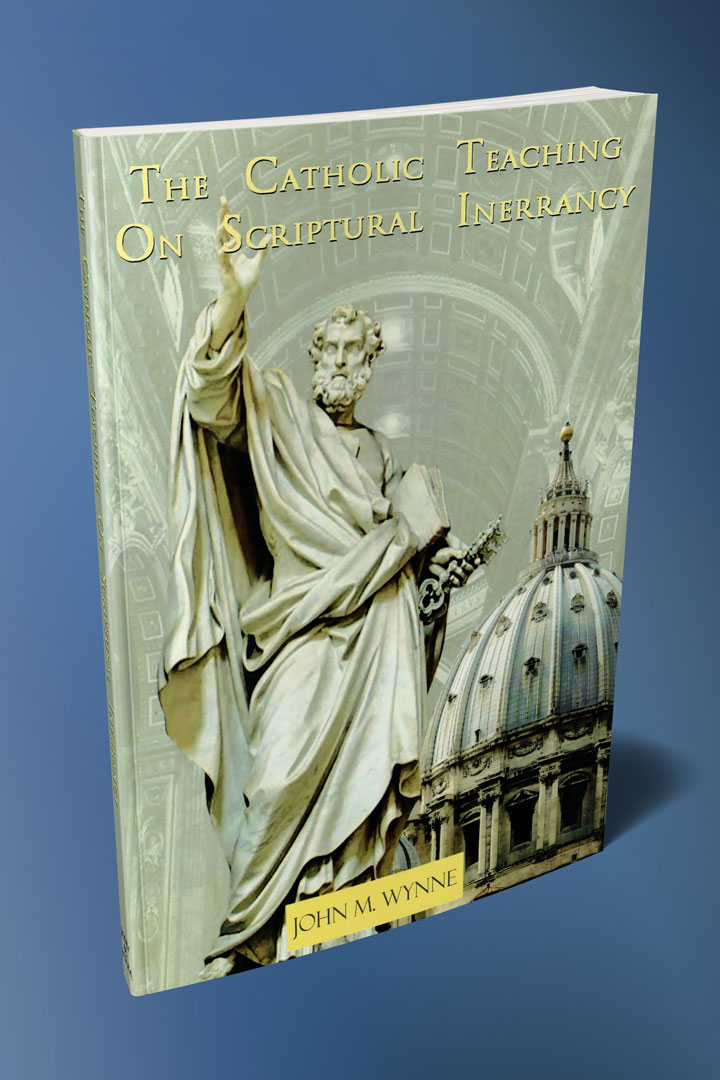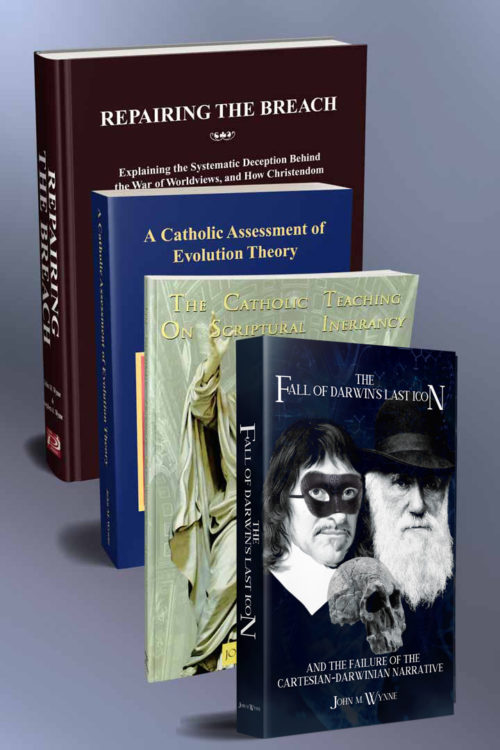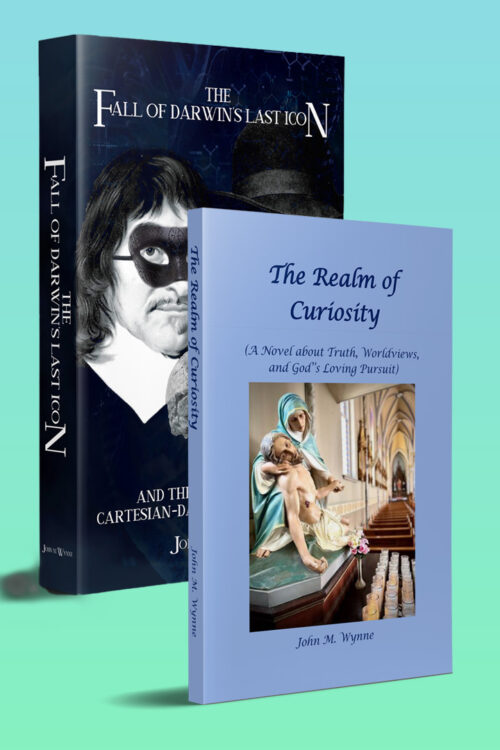Description
“I truly believe that this is one of the most important books of our time.”
– Hugh Owen, Kolbe Center for the Study of Creation
The Catholic Teaching On Scriptural Inerrancy:
A Solemnly Defined Doctrine Explained Through Magisterial Teachings, Sacred Scripture, and Sacred Tradition
A Great Book For:
- Study Groups
- College/High School Students
- Seminarians
- Catholic Teachers
- Anyone wishing to engage in the restoration of truth!
Some Q&A with author John Wynne:
Q. Why did you write this book?
A. I wrote this book because there is enormous confusion about the Catholic teaching on Scriptural inerrancy. While the Church has always taught-and continues to teach after Vatican II – that all of Sacred Scripture is inspired and all of Sacred Scripture is, therefore, inerrant, it is very common for Biblical scholars and confused Catholics to claim that the Church now teaches “limited inerrancy,” the position that Sacred Scripture could contain errors in science or history.
Q. Why is the issue so important to Catholics?
A. The defense of this infallible teaching is among the most important of all doctrines to defend, because so many dogmas are based on the written Word of God. If Sacred Scripture contains errors, it becomes only a matter of time before any and all dogmas become under attack.
Also, the inerrancy of Sacred Scripture has been infallibly defined by three ecumenical councils. These solemn definitions have been reaffirmed by numerous Papal encyclicals, apostolic letters, and by Vatican II. Sacred Tradition and Sacred Scripture’s internal testimony also testify to the inspiration and inerrancy of the Sacred text. So if the Magisterium has been wrong on this issue, and if Sacred Scripture and Sacred Tradition have also been wrong, what becomes of the trust Catholics have placed in the Magisterium and Sacred Tradition? Why bother being Catholic if the Church and the Fathers have been wrong on this “irreformable” teaching and if Sacred Scripture contains errors? What’s the point?
Q. Many Scholars who claim the Church has altered its teaching cite Dei Verbum as the basis for their claim. How do you respond?
They are in error and in serious error at that. Chapter 2 contains one of the most thorough evaluations of the true teachings of Dei Verbum and it concludes that, even given the most liberal translation, there is no legitimate way to conclude that Vatican II taught limited inerrancy.
Q. Why, then, do so many Catholic scholars claim that limited inerrancy is a permissible view to hold?
A. Many scholars falsely believe that modern exegesis and natural science have shown the Bible to contain errors. Since these scholars do not recognize the rationalistic presuppositions and flawed Darwinian claims behind their conclusions, they feel that the only alternative is to endorse the view of limited inerrancy even though, to quote Humani Generis, the view has been “often condemned.”
Q. Do conservative Catholic Scholars agree with your conclusions?
A. Well known and loyal Catholic Scholars such as Dr. Scott Hahn and Fr. Brian Harrison have performed much valuable work on this issue and have reached the same conclusion as to the authentic Church teaching on inerrancy. Our work differs from some conservative Catholic scholars, however, in that we trace the flawed method of wayward Catholic scholars, not just to poor and rationalistic methods of exegesis, but also to the historical influence of evolutionary thought.
Q. Of your three books, which one should interested Catholics read first?
A. It depends on the appetite of the reader. Generally, I would recommend that the Catholic reader begin with The Catholic Teaching on Scriptural Inerrancy, as it is a short book and provides a concise summary of the impact of rationalism and evolutionary thinking on Catholic scholars and the rest of the world. I would recommend A Catholic Assessment next, and then Repairing the Breach as it is the most detailed book of the three and delves into the details of many issues raised in the other two books.
Back Cover Text of The Catholic Teaching On Scriptural Inerrancy
This short book explains that complete Scriptural inerrancy is an infallible doctrine of the Catholic Church, solemnly defined by three ecumenical councils (Florence, Trent, and Vatican I) and re-affirmed by Vatican II. The teaching on Scriptural inerrancy also appears in multiple Papal encyclicals, is found in Sacred Tradition, and in Sacred Scripture’s internal testimony.
Despite this unified teaching from the Magisterium, Sacred Tradition, and Sacred Scripture, open dissension has emerged among prominent “Catholic scholars” who, during recent decades, have increasingly embraced the often-condemned alternative of limited inerrancy – the notion that Sacred Scripture can contain errors in science or history. Why has such dissension occurred?
The final chapter contains an insightful summary of the false philosophical roots that fed the error of limited inerrancy and produced what Pope St. John Paul II called the “fateful separation” between faith and reason. These false ideas will continue to inflict great damage until they are adequately refuted.
Fortunately, as the author explains, the means of mending the apparent divide between faith and reason is readily at hand, for never has the evidence from history, science, and reason more strongly supported the Christian worldview and authentic Catholic teachings. The challenge to this generation of Catholics is whether we have the discipline to learn the evidence and the courage to engage in the restoration of truth. The book closes with penetrating questions that will generate much discussion and inspire readers into action.
Table of Contents of The Catholic Teaching On Scriptural Inerrancy
Introduction
Chapter One
The Testimony of the Magisterium
Chapter Two
The Teaching of Dei Verbum
Chapter Three
The Testimony of Sacred Scripture
Chapter Four
The Testimony of Sacred Tradition
Chapter Five
Questions and Answers about Scriptural Inerrancy
Appendix A
Two Hundred Old Testament Prophecies Fulfilled by Jesus Christ



